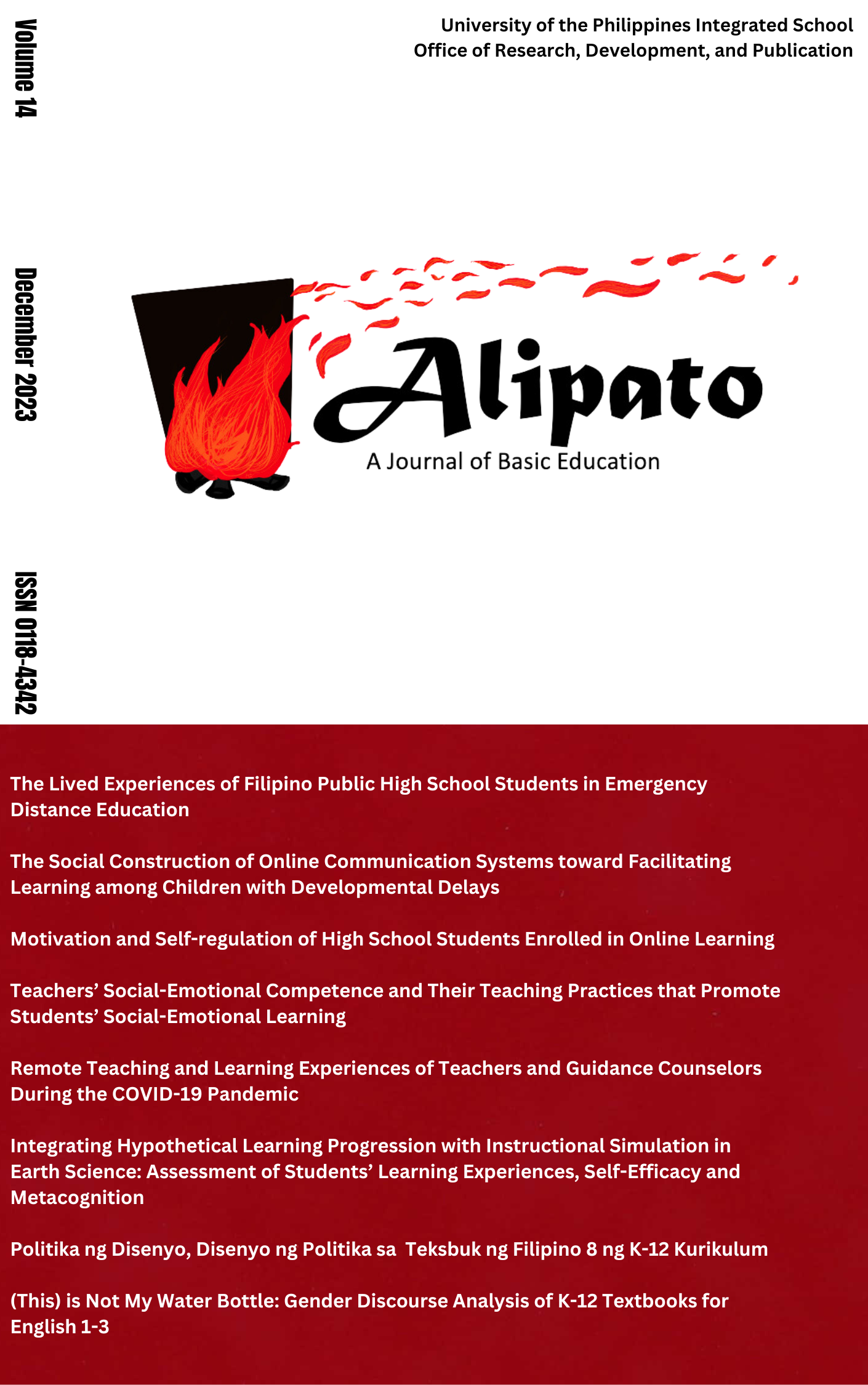Integrating Hypothetical Learning Progression with Instructional Simulation in Earth Science
Assessment of Students’ Performance, Learning Experiences, Self-Efficacy, and Metacognition
Abstract
The utilization of hypothetical learning progressions in science is a developmental approach that can help students create a more sophisticated understanding of the natural world. This study assessed sixty (60) Grade 8 high school students’ learning progression in Earth Science. Using convergent parallel mixed method design (QUAL + QUAN), students’ performance, learning experiences, self-efficacy and metacognition were investigated by collecting data such as qualitative essay and quantitative responses in Self-Efficacy and Metacognition Learning Inventory in Science (SEMLIS). The study showed students perceived meaningful learning experiences through simulation activities in earth science. Students’ feedback reflects positive perceptions towards their learning experiences, and they were able to demonstrate evidence of attaining higher levels in the hypothetical paths. Pearson correlation analysis also showed significant links between Constructivist Connectivity and Monitoring, Evaluation, and Planning, Constructivist Connectivity and Self-Efficacy, and Constructivist Connectivity and Control of Concentration, indicating higher self-efficacy and concentration among students with strong knowledge construction skills. Additionally, correlations between Monitoring, Evaluation, and Planning, and Self-Efficacy, as well as Monitoring, Evaluation, and Planning, and Control of Concentration highlighted the importance of planning and evaluation in fostering self-efficacy and concentration.


